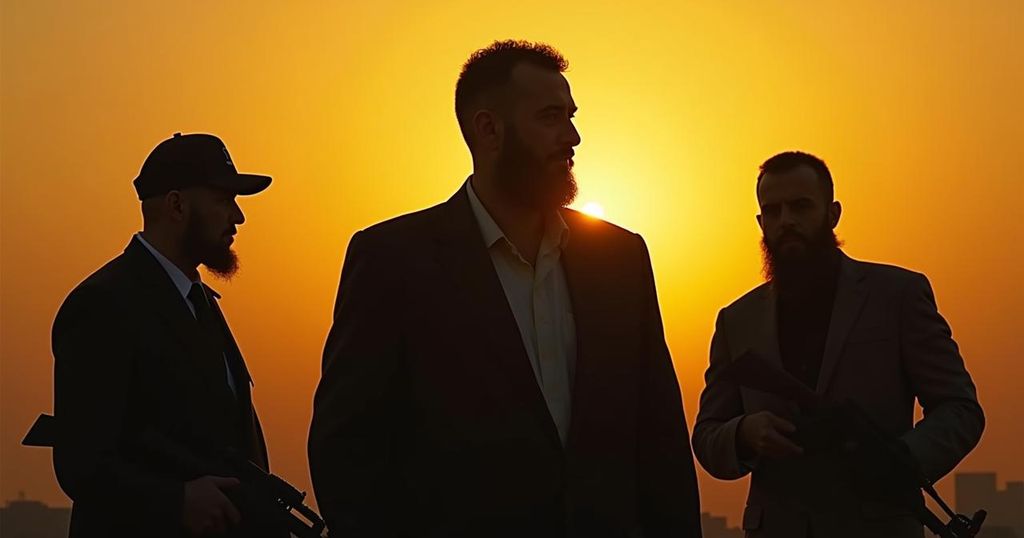Israeli airstrikes in Lebanon have resulted in the deaths of seven high-ranking Hezbollah officials, including leader Hassan Nasrallah. This escalation reflects a major turn in the ongoing conflict amid Hezbollah’s support for Hamas, compounding the pressures faced by Lebanon’s political and military landscape as the organization seeks to recover from significant losses.
In a recent surge of violence in the Middle East, Israeli airstrikes in Lebanon have resulted in the deaths of seven high-ranking Hezbollah officials, including the influential leader Hassan Nasrallah. The escalation marks a stark turning point in the ongoing conflict, igniting profound shock waves across Lebanon and the broader region. This latest wave of strikes follows Hezbollah’s decision to bolster its ally Hamas in the Gaza Strip, a move that began shortly after Hamas’s unexpected offensive in southern Israel. Among the notable casualties was Hassan Nasrallah, who had been at the helm of Hezbollah since 1992, guiding the organization through multiple conflicts with Israel and evolving it into a formidable political and military force in Lebanon. He was instrumental in supporting Syrian President Bashar Assad during the Syrian civil war and was key to enhancing the capabilities of various Iran-aligned groups across the region. Nasrallah’s dual legacy inspires considerable division among the Lebanese population. Others who fell victim to the raids included Nabil Kaouk, the deputy head of Hezbollah’s Central Council, who was seen as a potential successor to Nasrallah; Ibrahim Akil, the commander of the elite Radwan Forces; Ahmad Wehbe, also attached to the Radwan Forces; Ali Karaki, who managed the southern front; Mohammad Surour, the head of the drone unit; and Ibrahim Kobeissi, the leader of Hezbollah’s missile unit. These targeted strikes reflect Israel’s strategic effort to dismantle Hezbollah’s leadership structure, thereby significantly weakening the group’s operational capabilities. The ongoing conflict not only threatens to reshape Hezbollah’s internal hierarchy but also poses severe challenges for its governance and military strategies moving forward. Senior members such as Naim Kassem, the deputy leader, and Hashim Safieddine, who is anticipated to be the next leader, now carry the burden of maintaining organizational stability amid increasing hostilities. The context of these developments is critical as Lebanon grapples with its socio-political complexities and the pervasive influence of Iran in regional conflicts.
The recent Israeli strikes leading to the deaths of seven key Hezbollah officials are part of an ongoing conflict that has intensified following Hezbollah’s support for Hamas during the latter’s recent offensive against Israel. Hassan Nasrallah, the prominent leader of Hezbollah, had been pivotal in transforming the group into a significant political and military player in Lebanon since the 1980s. His leadership spanned numerous conflicts, while Hezbollah’s involvement in the Syrian civil war also showcased its extended reach and strategic alliances, particularly with Iran. The striking nature of the recent attacks—targeting high-ranking leaders—signals a major shift in Israel’s military strategy as it seeks to curtail Hezbollah’s operational effectiveness. This precarious situation has compelled various factions within Hezbollah to navigate the conflicting demands of military engagement and internal governance, while also considering the implications of their actions on their broader political aspirations in Lebanon.
The assassination of key Hezbollah officials, including Hassan Nasrallah, represents a profound escalation in the ongoing confrontation between Israel and Hezbollah. The death of these leaders not only disrupts the internal hierarchy of Hezbollah but also challenges the organization’s future military and political strategies. The context of these events underscores the intricate web of regional alliances and conflicts that continue to shape the Middle East, with Lebanon now facing the dual pressures of internal instability and external aggression.
Original Source: www.nbcphiladelphia.com






